₹365.00
Share with your Friends
| 0 | 0 | 0 | 0 | 0 | 0 | 0 | 1 | 1 | 0 | ||||||
| 1 | 0 | 0 | 1 | 0 | 0 | 1 | 0 | 0 | 1 | ||||||
| 1 | 0 | 0 | 1 | 0 | 1 | 1 | 0 | 0 | 0 | ||||||
| 0 | 0 | 1 | 1 | 1 | 0 | 0 | 0 | 0 | 0 | ||||||
| 0 | 0 | 1 | 1 | 1 | 0 | 0 | 1 | 1 | 1 | ||||||

| Symbol | Probability |
| 0.2 | |
| 0.3 | |
| 0.1 | |
| 0.2 | |
| 0.1 | |
| 0.1 |
| Symbol | Probability |
| 1 | 0.4 |
| 2 | 0.3 |
| 3 | 0.1 |
| 4 | 0.1 |
| 5 | 0.1 |
| 0 | 0 | 0 | 0 | 0 | 0 | 0 | 1 | 1 | 0 | ||||||
| 1 | 0 | 0 | 1 | 0 | 0 | 1 | 0 | 0 | 1 | ||||||
| 1 | 0 | 0 | 1 | 0 | 1 | 1 | 0 | 0 | 0 | ||||||
| 0 | 0 | 1 | 1 | 1 | 0 | 0 | 0 | 0 | 0 | ||||||
| 0 | 0 | 1 | 1 | 1 | 0 | 0 | 1 | 1 | 1 | ||||||
You can access the Complete Solution through our app, which can be downloaded using this link:
Simply click “Install” to download and install the app, and then follow the instructions to purchase the required assignment solution. Currently, the app is only available for Android devices. We are working on making the app available for iOS in the future, but it is not currently available for iOS devices.
Yes, It is Complete Solution, a comprehensive solution to the assignments for IGNOU. Valid from January 1, 2023 to December 31, 2023.
Yes, the Complete Solution is aligned with the IGNOU requirements and has been solved accordingly.
Yes, the Complete Solution is guaranteed to be error-free.The solutions are thoroughly researched and verified by subject matter experts to ensure their accuracy.
As of now, you have access to the Complete Solution for a period of 6 months after the date of purchase, which is sufficient to complete the assignment. However, we can extend the access period upon request. You can access the solution anytime through our app.
The app provides complete solutions for all assignment questions. If you still need help, you can contact the support team for assistance at Whatsapp +91-9958288900
No, access to the educational materials is limited to one device only, where you have first logged in. Logging in on multiple devices is not allowed and may result in the revocation of access to the educational materials.
Payments can be made through various secure online payment methods available in the app.Your payment information is protected with industry-standard security measures to ensure its confidentiality and safety. You will receive a receipt for your payment through email or within the app, depending on your preference.
The instructions for formatting your assignments are detailed in the Assignment Booklet, which includes details on paper size, margins, precision, and submission requirements. It is important to strictly follow these instructions to facilitate evaluation and avoid delays.
Our educational materials are solely available on our website and application only. Users and students can report the dealing or selling of the copied version of our educational materials by any third party at our email address (abstract4math@gmail.com) or mobile no. (+91-9958288900).
In return, such users/students can expect free our educational materials/assignments and other benefits as a bonafide gesture which will be completely dependent upon our discretion.

Please read the following points before ordering this IGNOU Assignment Solution.

Please read the following points before ordering this IGNOU Assignment Solution.

Please read the following points before ordering this IGNOU Assignment Solution.

Please read the following points before ordering this IGNOU Assignment Solution.

Solved Papers – Dec 2022 to Dec 2023 (Total 3 Papers)
Access via our Android App or any Web browser.
Please read the following points before ordering :

Solved Papers – Dec 2022 to Dec 2023 (Total 3 Papers)
Access via our Android App or any Web browser.
Please read the following points before ordering :
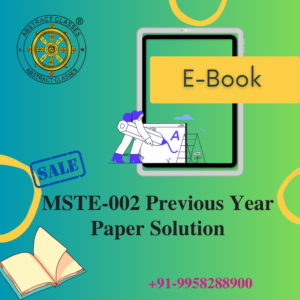
Solved Papers – June 2015 to Dec 2023 (Total 18 Papers)
Access via our Android App or any Web browser.
Please read the following points before ordering :

Solved Papers – Dec 2015 to Dec 2023 (Total 17 Papers)
Access via our Android App or any Web browser.
Please read the following points before ordering :
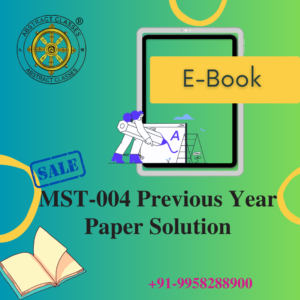
Solved Papers – June 2015 to Dec 2023 (Total 18 Papers)
Access via our Android App or any Web browser.
Please read the following points before ordering :

Access via our Android App Only
Please read the following points before ordering :

Access via our Android App Only
Please read the following points before ordering :

Access via our Android App Only
Please read the following points before ordering :

Access via our Android App Only
Please read the following points before ordering :

Access via our Android App Only
Please read the following points before ordering :

Access via our Android App Only
Please read the following points before ordering :

Access via our Android App Only
Please read the following points before ordering :

Access via our Android App Only
Please read the following points before ordering :

Access via our Android App Only
Please read the following points before ordering :

Please read the following points before ordering this IGNOU Assignment Solution.

Please read the following points before ordering this IGNOU Assignment Solution.

Please read the following points before ordering this IGNOU Assignment Solution.

Please read the following points before ordering this IGNOU Assignment Solution.

Access via our Android App Only
Please read the following points before ordering :

Access via our Android App Only
Please read the following points before ordering :

Access via our Android App Only
Please read the following points before ordering :

Access via our Android App Only
Please read the following points before ordering :

Access via our Android App Only
Please read the following points before ordering :

Access via our Android App Only
Please read the following points before ordering :

Access via our Android App Only
Please read the following points before ordering :

Access via our Android App Only
Please read the following points before ordering :

Access via our Android App Only
Please read the following points before ordering :

Access via our Android App Only
Please read the following points before ordering :

Access via our Android App Only
Please read the following points before ordering :

Access via our Android App Only
Please read the following points before ordering :

Access via our Android App Only
Please read the following points before ordering :

Please read the following points before ordering this IGNOU Assignment Solution.

Please read the following points before ordering this IGNOU Assignment Solution.

Please read the following points before ordering this IGNOU Assignment Solution.

Please read the following points before ordering this IGNOU Assignment Solution.

Please read the following points before ordering this IGNOU Assignment Solution.

Please read the following points before ordering this IGNOU Assignment Solution.

Please read the following points before ordering this IGNOU Assignment Solution.

Please read the following points before ordering this IGNOU Assignment Solution.

Please read the following points before ordering this IGNOU Assignment Solution.

Please read the following points before ordering this IGNOU Assignment Solution.

Please read the following points before ordering this IGNOU Assignment Solution.

Please read the following points before ordering this IGNOU Assignment Solution.

Please read the following points before ordering this IGNOU Assignment Solution.

Please read the following points before ordering this IGNOU Assignment Solution.

Please read the following points before ordering this IGNOU Assignment Solution.

Please read the following points before ordering this IGNOU Assignment Solution.

Please read the following points before ordering this IGNOU Assignment Solution.

Please read the following points before ordering this IGNOU Assignment Solution.

Please read the following points before ordering this IGNOU Assignment Solution.

Please read the following points before ordering this IGNOU Assignment Solution.

Please read the following points before ordering this IGNOU Assignment Solution.

Please read the following points before ordering this IGNOU Assignment Solution.

Please read the following points before ordering this IGNOU Assignment Solution.

Please read the following points before ordering this IGNOU Assignment Solution.

Please read the following points before ordering this IGNOU Assignment Solution.

Please read the following points before ordering this IGNOU Assignment Solution.

Please read the following points before ordering this IGNOU Assignment Solution.

Please read the following points before ordering this IGNOU Assignment Solution.

Access via our Android App Only
Please read the following points before ordering :

Access via our Android App Only
Please read the following points before ordering :

Access via our Android App Only
Please read the following points before ordering :

Access via our Android App Only
Please read the following points before ordering :

Access via our Android App Only
Please read the following points before ordering :

Access via our Android App Only
Please read the following points before ordering :

Access via our Android App Only
Please read the following points before ordering :

Access via our Android App Only
Please read the following points before ordering :

Access via our Android App Only
Please read the following points before ordering :
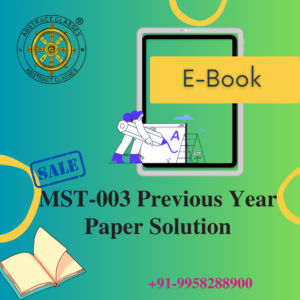
Solved Papers – June 2015 to Dec 2023 (Total 18 Papers)
Access via our Android App or any Web browser.
Please read the following points before ordering :
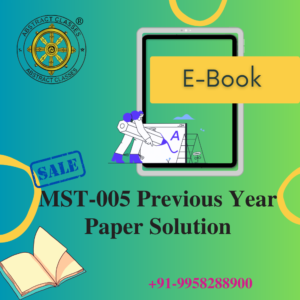
Solved Papers – Dec 2015 to Dec 2023 (Total 17 Papers)
Access via our Android App or any Web browser.
Please read the following points before ordering :
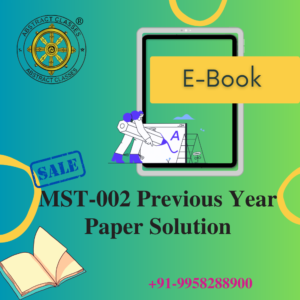
Solved Papers – June 2015 to Dec 2023 (Total 18 Papers)
Access via our Android App or any Web browser.
Please read the following points before ordering :

Access via our Android App Only
Please read the following points before ordering :

Available on our Android App as well.
Please read the following points before ordering :

Available on our Android App as well.
Please read the following points before ordering :

Access via our Android App Only
Please read the following points before ordering :

Access via our Android App Only
Please read the following points before ordering :

Access via our Android App Only
Please read the following points before ordering :

Access via our Android App Only
Please read the following points before ordering :

Access via our Android App Only
Please read the following points before ordering :

Access via our Android App Only
Please read the following points before ordering :

Access via our Android App Only
Please read the following points before ordering :

Access via our Android App Only
Please read the following points before ordering :
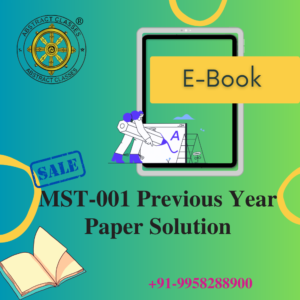
Solved Papers – June 2015 to Dec 2023 (Total 18 Papers)
Access via our Android App or any Web browser.
Please read the following points before ordering :

Access via our Android App Only
Please read the following points before ordering :

Access via our Android App Only
Please read the following points before ordering :

Access via our Android App Only
Please read the following points before ordering :
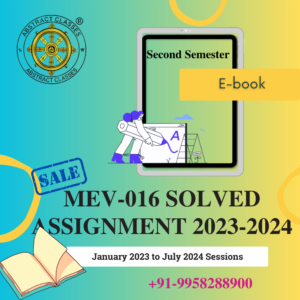
Access via our Android App Only
Please read the following points before ordering :
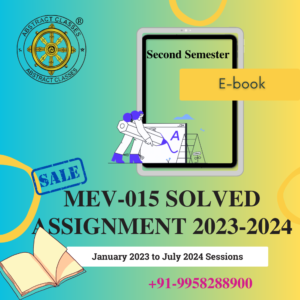
Access via our Android App Only
Please read the following points before ordering :
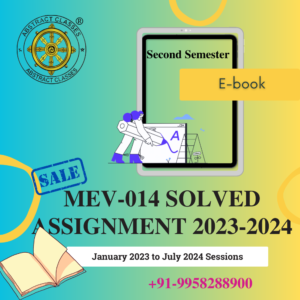
Access via our Android App Only
Please read the following points before ordering :

Access via our Android App Only
Please read the following points before ordering :

Access via our Android App Only
Please read the following points before ordering :

Access via our Android App Only
Please read the following points before ordering :

Please read the following points before ordering this IGNOU Assignment Solution.

Please read the following points before ordering this IGNOU Assignment Solution.

Please read the following points before ordering this IGNOU Assignment Solution.

Please read the following points before ordering this IGNOU Assignment Solution.

Please read the following points before ordering this IGNOU Assignment Solution.

Access via our Android App Only
Please read the following points before ordering :

Access via our Android App Only
Please read the following points before ordering :

Access via our Android App Only
Please read the following points before ordering :

Access via our Android App Only
Please read the following points before ordering :
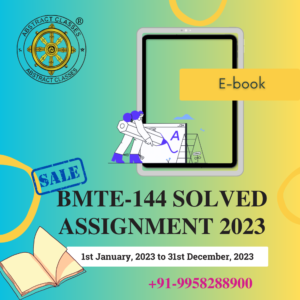
Please read the following points before ordering this IGNOU Assignment Solution.

Access via our Android App Only
Please read the following points before ordering :

Access via our Android App Only
Please read the following points before ordering :

Access via our Android App Only
Please read the following points before ordering :

Access via our Android App Only
Please read the following points before ordering :

Access via our Android App Only
Please read the following points before ordering :

Access via our Android App Only
Please read the following points before ordering :

Access via our Android App Only
Please read the following points before ordering :

Access via our Android App Only
Please read the following points before ordering :

Access via our Android App Only
Please read the following points before ordering :

Access via our Android App Only
Please read the following points before ordering :

Access via our Android App Only
Please read the following points before ordering :

Access via our Android App Only
Please read the following points before ordering :

Access via our Android App Only
Please read the following points before ordering :

Access via our Android App Only
Please read the following points before ordering :

Access via our Android App Only
Please read the following points before ordering :

Access via our Android App Only
Please read the following points before ordering :

Access via our Android App Only
Please read the following points before ordering :

Access via our Android App Only
Please read the following points before ordering :

Access via our Android App Only
Please read the following points before ordering :

Access via our Android App Only
Please read the following points before ordering :

Access via our Android App Only
Please read the following points before ordering :

Access via our Android App Only
Please read the following points before ordering :

Access via our Android App Only
Please read the following points before ordering :

Access via our Android App Only
Please read the following points before ordering :
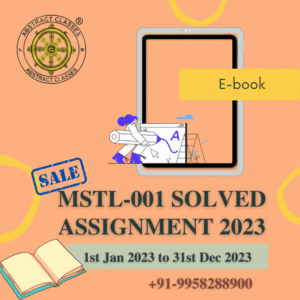
Access via our Android App Only
Please read the following points before ordering :

Please read the following points before ordering this IGNOU Assignment Solution.

Please read the following points before ordering this IGNOU Assignment Solution.

Please read the following points before ordering this IGNOU Assignment Solution.

Please read the following points before ordering this IGNOU Assignment Solution.

Please read the following points before ordering this IGNOU Assignment Solution.

Please read the following points before ordering this IGNOU Assignment Solution.

Please read the following points before ordering this IGNOU Assignment Solution.

Please read the following points before ordering this IGNOU Assignment Solution.

Please read the following points before ordering this IGNOU Assignment Solution.

Please read the following points before ordering this IGNOU Assignment Solution.

Please read the following points before ordering this IGNOU Assignment Solution.

Please read the following points before ordering this IGNOU Assignment Solution.

Please read the following points before ordering this IGNOU Assignment Solution.

Please read the following points before ordering this IGNOU Assignment Solution.

Please read the following points before ordering this IGNOU Assignment Solution.

Please read the following points before ordering this IGNOU Assignment Solution.

Please read the following points before ordering this IGNOU Assignment Solution.

Please read the following points before ordering this IGNOU Assignment Solution.

Please read the following points before ordering this IGNOU Assignment Solution.
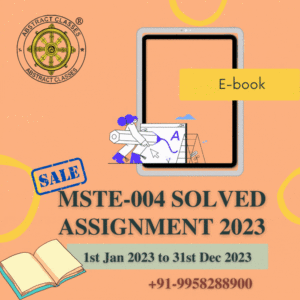
Access via our Android App Only
Please read the following points before ordering :
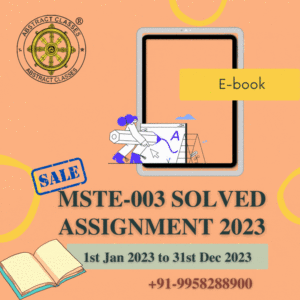
Access via our Android App Only
Please read the following points before ordering :

Access via our Android App Only
Please read the following points before ordering :

Access via our Android App Only
Please read the following points before ordering :
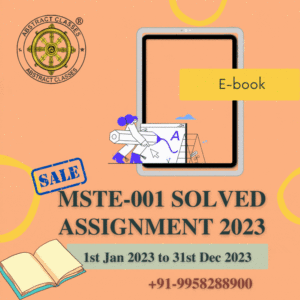
Access via our Android App Only
Please read the following points before ordering :
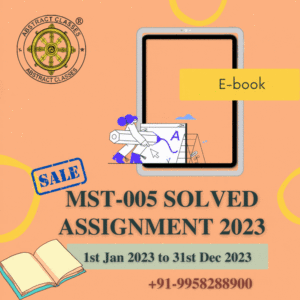
Access via our Android App Only
Please read the following points before ordering :

Please read the following points before ordering this IGNOU Assignment Solution.

Please read the following points before ordering this IGNOU Assignment Solution.

Please read the following points before ordering this IGNOU Assignment Solution.

Please read the following points before ordering this IGNOU Assignment Solution.

Please read the following points before ordering this IGNOU Assignment Solution.

Please read the following points before ordering this IGNOU Assignment Solution.

Please read the following points before ordering this IGNOU Assignment Solution.

Please read the following points before ordering this IGNOU Assignment Solution.

Please read the following points before ordering this IGNOU Assignment Solution.

Please read the following points before ordering this IGNOU Assignment Solution.

Please read the following points before ordering this IGNOU Assignment Solution.

Please read the following points before ordering this IGNOU Assignment Solution.

Please read the following points before ordering this IGNOU Assignment Solution.

Please read the following points before ordering this IGNOU Assignment Solution.

Please read the following points before ordering this IGNOU Assignment Solution.

Please read the following points before ordering this IGNOU Assignment Solution.

Please read the following points before ordering this IGNOU Assignment Solution.

Please read the following points before ordering this IGNOU Assignment Solution.

Please read the following points before ordering this IGNOU Assignment Solution.

Please read the following points before ordering this IGNOU Assignment Solution.

Please read the following points before ordering this IGNOU Assignment Solution.

Please read the following points before ordering this IGNOU Assignment Solution.

Please read the following points before ordering this IGNOU Assignment Solution.

Please read the following points before ordering this IGNOU Assignment Solution.

Please read the following points before ordering this IGNOU Assignment Solution.

Please read the following points before ordering this IGNOU Assignment Solution.

Please read the following points before ordering this IGNOU Assignment Solution.

Please read the following points before ordering this IGNOU Assignment Solution.

Please read the following points before ordering this IGNOU Assignment Solution.

Please read the following points before ordering this IGNOU Assignment Solution.

Please read the following points before ordering this IGNOU Assignment Solution.

Please read the following points before ordering this IGNOU Assignment Solution.

Please read the following points before ordering this IGNOU Assignment Solution.

Please read the following points before ordering this IGNOU Assignment Solution.
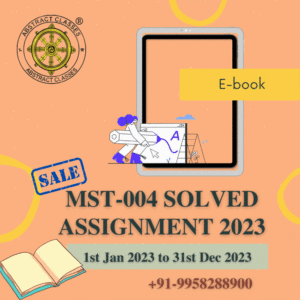
Access via our Android App Only
Please read the following points before ordering :
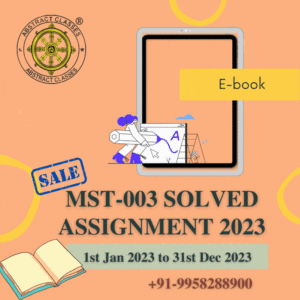
Access via our Android App Only
Please read the following points before ordering :

Access via our Android App Only
Please read the following points before ordering :

Access via our Android App Only
Please read the following points before ordering :

Donec pede justo, fringilla vel, aliquet nec, vulputate eget, arcu. In enim justo, rhoncus ut, imperdiet a, venenatis vitae, justo.
There are many variations of passages of Lorem Ipsum available, but the majority have suffered alteration in some form, by injected humour, or randomised words which don’t look even slightly.

Donec pede justo, fringilla vel, aliquet nec, vulputate eget, arcu. In enim justo, rhoncus ut, imperdiet a, venenatis vitae, justo.
There are many variations of passages of Lorem Ipsum available, but the majority have suffered alteration in some form, by injected humour, or randomised words which don’t look even slightly.
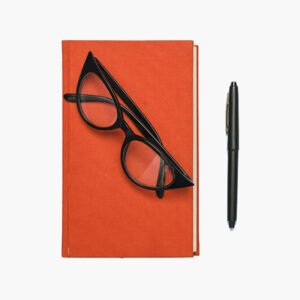
Donec pede justo, fringilla vel, aliquet nec, vulputate eget, arcu. In enim justo, rhoncus ut, imperdiet a, venenatis vitae, justo.
There are many variations of passages of Lorem Ipsum available, but the majority have suffered alteration in some form, by injected humour, or randomised words which don’t look even slightly.

Donec pede justo, fringilla vel, aliquet nec, vulputate eget, arcu. In enim justo, rhoncus ut, imperdiet a, venenatis vitae, justo.
There are many variations of passages of Lorem Ipsum available, but the majority have suffered alteration in some form, by injected humour, or randomised words which don’t look even slightly.

Donec pede justo, fringilla vel, aliquet nec, vulputate eget, arcu. In enim justo, rhoncus ut, imperdiet a, venenatis vitae, justo.
There are many variations of passages of Lorem Ipsum available, but the majority have suffered alteration in some form, by injected humour, or randomised words which don’t look even slightly.

This story, dazzling in its powerful simplicity and soul-stirring wisdom, is about an Andalusian shepherd boy named Santiago who travels from his homeland in Spain to the Egyptian desert in search of a treasure buried near the Pyramids. Lorem ipsum dolor sit amet, consectetur adipiscing elit, sed do eiusmod tempor incididunt ut labore et. Lorem ipsum dolor sit amet, consectetur adipiscing elit, sed do eiusmod tempor incididunt etc.
1 in stock

This story, dazzling in its powerful simplicity and soul-stirring wisdom, is about an Andalusian shepherd boy named Santiago who travels from his homeland in Spain to the Egyptian desert in search of a treasure buried near the Pyramids. Lorem ipsum dolor sit amet, consectetur adipiscing elit, sed do eiusmod tempor incididunt ut labore et. Lorem ipsum dolor sit amet, consectetur adipiscing elit, sed do eiusmod tempor incididunt etc.
4 in stock

Solved Papers – Dec 2022 to Dec 2023 (Total 3 Papers)
Access via our Android App or any Web browser.
Please read the following points before ordering :

Solved Papers – Dec 2022 to Dec 2023 (Total 3 Papers)
Access via our Android App or any Web browser.
Please read the following points before ordering :

Solved Papers – June 2015 to Dec 2023 (Total 18 Papers)
Access via our Android App or any Web browser.
Please read the following points before ordering :

Solved Papers – Dec 2015 to Dec 2023 (Total 17 Papers)
Access via our Android App or any Web browser.
Please read the following points before ordering :

Solved Papers – June 2015 to Dec 2023 (Total 18 Papers)
Access via our Android App or any Web browser.
Please read the following points before ordering :

Access via our Android App Only
Please read the following points before ordering :

Access via our Android App Only
Please read the following points before ordering :

Access via our Android App Only
Please read the following points before ordering :

Access via our Android App Only
Please read the following points before ordering :

Access via our Android App Only
Please read the following points before ordering :

Access via our Android App Only
Please read the following points before ordering :

Access via our Android App Only
Please read the following points before ordering :

Access via our Android App Only
Please read the following points before ordering :

Access via our Android App Only
Please read the following points before ordering :

Please read the following points before ordering this IGNOU Assignment Solution.

Please read the following points before ordering this IGNOU Assignment Solution.

Please read the following points before ordering this IGNOU Assignment Solution.

Please read the following points before ordering this IGNOU Assignment Solution.

Access via our Android App Only
Please read the following points before ordering :

Access via our Android App Only
Please read the following points before ordering :

Access via our Android App Only
Please read the following points before ordering :

Access via our Android App Only
Please read the following points before ordering :

Access via our Android App Only
Please read the following points before ordering :

Access via our Android App Only
Please read the following points before ordering :

Access via our Android App Only
Please read the following points before ordering :

Access via our Android App Only
Please read the following points before ordering :

Access via our Android App Only
Please read the following points before ordering :

Access via our Android App Only
Please read the following points before ordering :

Access via our Android App Only
Please read the following points before ordering :

Access via our Android App Only
Please read the following points before ordering :

Access via our Android App Only
Please read the following points before ordering :

Please read the following points before ordering this IGNOU Assignment Solution.

Please read the following points before ordering this IGNOU Assignment Solution.

Please read the following points before ordering this IGNOU Assignment Solution.

Please read the following points before ordering this IGNOU Assignment Solution.

Please read the following points before ordering this IGNOU Assignment Solution.

Please read the following points before ordering this IGNOU Assignment Solution.

Please read the following points before ordering this IGNOU Assignment Solution.

Please read the following points before ordering this IGNOU Assignment Solution.

Please read the following points before ordering this IGNOU Assignment Solution.

Please read the following points before ordering this IGNOU Assignment Solution.

Please read the following points before ordering this IGNOU Assignment Solution.

Please read the following points before ordering this IGNOU Assignment Solution.

Please read the following points before ordering this IGNOU Assignment Solution.

Please read the following points before ordering this IGNOU Assignment Solution.

Please read the following points before ordering this IGNOU Assignment Solution.

Please read the following points before ordering this IGNOU Assignment Solution.

Please read the following points before ordering this IGNOU Assignment Solution.

Please read the following points before ordering this IGNOU Assignment Solution.

Please read the following points before ordering this IGNOU Assignment Solution.

Please read the following points before ordering this IGNOU Assignment Solution.

Please read the following points before ordering this IGNOU Assignment Solution.

Please read the following points before ordering this IGNOU Assignment Solution.

Please read the following points before ordering this IGNOU Assignment Solution.

Please read the following points before ordering this IGNOU Assignment Solution.

Please read the following points before ordering this IGNOU Assignment Solution.

Please read the following points before ordering this IGNOU Assignment Solution.

Please read the following points before ordering this IGNOU Assignment Solution.

Please read the following points before ordering this IGNOU Assignment Solution.

Access via our Android App Only
Please read the following points before ordering :

Access via our Android App Only
Please read the following points before ordering :

Access via our Android App Only
Please read the following points before ordering :

Access via our Android App Only
Please read the following points before ordering :

Access via our Android App Only
Please read the following points before ordering :

Access via our Android App Only
Please read the following points before ordering :

Access via our Android App Only
Please read the following points before ordering :

Access via our Android App Only
Please read the following points before ordering :

Access via our Android App Only
Please read the following points before ordering :

Solved Papers – June 2015 to Dec 2023 (Total 18 Papers)
Access via our Android App or any Web browser.
Please read the following points before ordering :

Solved Papers – Dec 2015 to Dec 2023 (Total 17 Papers)
Access via our Android App or any Web browser.
Please read the following points before ordering :

Solved Papers – June 2015 to Dec 2023 (Total 18 Papers)
Access via our Android App or any Web browser.
Please read the following points before ordering :

Access via our Android App Only
Please read the following points before ordering :

Available on our Android App as well.
Please read the following points before ordering :

Available on our Android App as well.
Please read the following points before ordering :

Access via our Android App Only
Please read the following points before ordering :

Access via our Android App Only
Please read the following points before ordering :

Access via our Android App Only
Please read the following points before ordering :

Access via our Android App Only
Please read the following points before ordering :

Access via our Android App Only
Please read the following points before ordering :

Access via our Android App Only
Please read the following points before ordering :

Access via our Android App Only
Please read the following points before ordering :

Access via our Android App Only
Please read the following points before ordering :

Solved Papers – June 2015 to Dec 2023 (Total 18 Papers)
Access via our Android App or any Web browser.
Please read the following points before ordering :

Access via our Android App Only
Please read the following points before ordering :

Access via our Android App Only
Please read the following points before ordering :

Access via our Android App Only
Please read the following points before ordering :

Access via our Android App Only
Please read the following points before ordering :

Access via our Android App Only
Please read the following points before ordering :

Access via our Android App Only
Please read the following points before ordering :

Access via our Android App Only
Please read the following points before ordering :

Access via our Android App Only
Please read the following points before ordering :

Access via our Android App Only
Please read the following points before ordering :

Please read the following points before ordering this IGNOU Assignment Solution.

Please read the following points before ordering this IGNOU Assignment Solution.

Please read the following points before ordering this IGNOU Assignment Solution.

Please read the following points before ordering this IGNOU Assignment Solution.

Please read the following points before ordering this IGNOU Assignment Solution.

Access via our Android App Only
Please read the following points before ordering :

Access via our Android App Only
Please read the following points before ordering :

Access via our Android App Only
Please read the following points before ordering :

Access via our Android App Only
Please read the following points before ordering :

Please read the following points before ordering this IGNOU Assignment Solution.

Access via our Android App Only
Please read the following points before ordering :

Access via our Android App Only
Please read the following points before ordering :

Access via our Android App Only
Please read the following points before ordering :

Access via our Android App Only
Please read the following points before ordering :

Access via our Android App Only
Please read the following points before ordering :

Access via our Android App Only
Please read the following points before ordering :

Access via our Android App Only
Please read the following points before ordering :

Access via our Android App Only
Please read the following points before ordering :

Access via our Android App Only
Please read the following points before ordering :

Access via our Android App Only
Please read the following points before ordering :

Access via our Android App Only
Please read the following points before ordering :

Access via our Android App Only
Please read the following points before ordering :

Access via our Android App Only
Please read the following points before ordering :

Access via our Android App Only
Please read the following points before ordering :

Access via our Android App Only
Please read the following points before ordering :

Access via our Android App Only
Please read the following points before ordering :

Access via our Android App Only
Please read the following points before ordering :

Access via our Android App Only
Please read the following points before ordering :

Access via our Android App Only
Please read the following points before ordering :

Access via our Android App Only
Please read the following points before ordering :

Access via our Android App Only
Please read the following points before ordering :

Access via our Android App Only
Please read the following points before ordering :

Access via our Android App Only
Please read the following points before ordering :

Access via our Android App Only
Please read the following points before ordering :

Access via our Android App Only
Please read the following points before ordering :

Please read the following points before ordering this IGNOU Assignment Solution.

Please read the following points before ordering this IGNOU Assignment Solution.

Please read the following points before ordering this IGNOU Assignment Solution.

Please read the following points before ordering this IGNOU Assignment Solution.

Please read the following points before ordering this IGNOU Assignment Solution.

Please read the following points before ordering this IGNOU Assignment Solution.

Please read the following points before ordering this IGNOU Assignment Solution.

Please read the following points before ordering this IGNOU Assignment Solution.

Please read the following points before ordering this IGNOU Assignment Solution.

Please read the following points before ordering this IGNOU Assignment Solution.

Please read the following points before ordering this IGNOU Assignment Solution.

Please read the following points before ordering this IGNOU Assignment Solution.

Please read the following points before ordering this IGNOU Assignment Solution.

Please read the following points before ordering this IGNOU Assignment Solution.

Please read the following points before ordering this IGNOU Assignment Solution.

Please read the following points before ordering this IGNOU Assignment Solution.

Please read the following points before ordering this IGNOU Assignment Solution.

Please read the following points before ordering this IGNOU Assignment Solution.

Please read the following points before ordering this IGNOU Assignment Solution.

Access via our Android App Only
Please read the following points before ordering :

Access via our Android App Only
Please read the following points before ordering :

Access via our Android App Only
Please read the following points before ordering :

Access via our Android App Only
Please read the following points before ordering :

Access via our Android App Only
Please read the following points before ordering :

Access via our Android App Only
Please read the following points before ordering :

Please read the following points before ordering this IGNOU Assignment Solution.

Please read the following points before ordering this IGNOU Assignment Solution.

Please read the following points before ordering this IGNOU Assignment Solution.

Please read the following points before ordering this IGNOU Assignment Solution.

Please read the following points before ordering this IGNOU Assignment Solution.

Please read the following points before ordering this IGNOU Assignment Solution.

Please read the following points before ordering this IGNOU Assignment Solution.

Please read the following points before ordering this IGNOU Assignment Solution.

Please read the following points before ordering this IGNOU Assignment Solution.

Please read the following points before ordering this IGNOU Assignment Solution.

Please read the following points before ordering this IGNOU Assignment Solution.

Please read the following points before ordering this IGNOU Assignment Solution.

Please read the following points before ordering this IGNOU Assignment Solution.

Please read the following points before ordering this IGNOU Assignment Solution.

Please read the following points before ordering this IGNOU Assignment Solution.

Please read the following points before ordering this IGNOU Assignment Solution.

Please read the following points before ordering this IGNOU Assignment Solution.

Please read the following points before ordering this IGNOU Assignment Solution.

Please read the following points before ordering this IGNOU Assignment Solution.

Please read the following points before ordering this IGNOU Assignment Solution.

Please read the following points before ordering this IGNOU Assignment Solution.

Please read the following points before ordering this IGNOU Assignment Solution.

Please read the following points before ordering this IGNOU Assignment Solution.

Please read the following points before ordering this IGNOU Assignment Solution.

Please read the following points before ordering this IGNOU Assignment Solution.

Please read the following points before ordering this IGNOU Assignment Solution.

Please read the following points before ordering this IGNOU Assignment Solution.

Please read the following points before ordering this IGNOU Assignment Solution.

Please read the following points before ordering this IGNOU Assignment Solution.

Please read the following points before ordering this IGNOU Assignment Solution.

Please read the following points before ordering this IGNOU Assignment Solution.

Please read the following points before ordering this IGNOU Assignment Solution.

Please read the following points before ordering this IGNOU Assignment Solution.

Please read the following points before ordering this IGNOU Assignment Solution.

Access via our Android App Only
Please read the following points before ordering :

Access via our Android App Only
Please read the following points before ordering :

Access via our Android App Only
Please read the following points before ordering :

Access via our Android App Only
Please read the following points before ordering :

Donec pede justo, fringilla vel, aliquet nec, vulputate eget, arcu. In enim justo, rhoncus ut, imperdiet a, venenatis vitae, justo.
There are many variations of passages of Lorem Ipsum available, but the majority have suffered alteration in some form, by injected humour, or randomised words which don’t look even slightly.

Donec pede justo, fringilla vel, aliquet nec, vulputate eget, arcu. In enim justo, rhoncus ut, imperdiet a, venenatis vitae, justo.
There are many variations of passages of Lorem Ipsum available, but the majority have suffered alteration in some form, by injected humour, or randomised words which don’t look even slightly.

Donec pede justo, fringilla vel, aliquet nec, vulputate eget, arcu. In enim justo, rhoncus ut, imperdiet a, venenatis vitae, justo.
There are many variations of passages of Lorem Ipsum available, but the majority have suffered alteration in some form, by injected humour, or randomised words which don’t look even slightly.

Donec pede justo, fringilla vel, aliquet nec, vulputate eget, arcu. In enim justo, rhoncus ut, imperdiet a, venenatis vitae, justo.
There are many variations of passages of Lorem Ipsum available, but the majority have suffered alteration in some form, by injected humour, or randomised words which don’t look even slightly.

Donec pede justo, fringilla vel, aliquet nec, vulputate eget, arcu. In enim justo, rhoncus ut, imperdiet a, venenatis vitae, justo.
There are many variations of passages of Lorem Ipsum available, but the majority have suffered alteration in some form, by injected humour, or randomised words which don’t look even slightly.

This story, dazzling in its powerful simplicity and soul-stirring wisdom, is about an Andalusian shepherd boy named Santiago who travels from his homeland in Spain to the Egyptian desert in search of a treasure buried near the Pyramids. Lorem ipsum dolor sit amet, consectetur adipiscing elit, sed do eiusmod tempor incididunt ut labore et. Lorem ipsum dolor sit amet, consectetur adipiscing elit, sed do eiusmod tempor incididunt etc.
1 in stock

This story, dazzling in its powerful simplicity and soul-stirring wisdom, is about an Andalusian shepherd boy named Santiago who travels from his homeland in Spain to the Egyptian desert in search of a treasure buried near the Pyramids. Lorem ipsum dolor sit amet, consectetur adipiscing elit, sed do eiusmod tempor incididunt ut labore et. Lorem ipsum dolor sit amet, consectetur adipiscing elit, sed do eiusmod tempor incididunt etc.
4 in stock

Solved Papers – Dec 2022 to Dec 2023 (Total 3 Papers)
Access via our Android App or any Web browser.
Please read the following points before ordering :

Solved Papers – Dec 2022 to Dec 2023 (Total 3 Papers)
Access via our Android App or any Web browser.
Please read the following points before ordering :

Solved Papers – June 2015 to Dec 2023 (Total 18 Papers)
Access via our Android App or any Web browser.
Please read the following points before ordering :

Solved Papers – Dec 2015 to Dec 2023 (Total 17 Papers)
Access via our Android App or any Web browser.
Please read the following points before ordering :

Solved Papers – June 2015 to Dec 2023 (Total 18 Papers)
Access via our Android App or any Web browser.
Please read the following points before ordering :

Access via our Android App Only
Please read the following points before ordering :

Access via our Android App Only
Please read the following points before ordering :

Access via our Android App Only
Please read the following points before ordering :

Access via our Android App Only
Please read the following points before ordering :

Access via our Android App Only
Please read the following points before ordering :

Access via our Android App Only
Please read the following points before ordering :

Access via our Android App Only
Please read the following points before ordering :

Access via our Android App Only
Please read the following points before ordering :

Access via our Android App Only
Please read the following points before ordering :

Please read the following points before ordering this IGNOU Assignment Solution.

Please read the following points before ordering this IGNOU Assignment Solution.

Please read the following points before ordering this IGNOU Assignment Solution.

Please read the following points before ordering this IGNOU Assignment Solution.

Access via our Android App Only
Please read the following points before ordering :

Access via our Android App Only
Please read the following points before ordering :

Access via our Android App Only
Please read the following points before ordering :

Access via our Android App Only
Please read the following points before ordering :

Access via our Android App Only
Please read the following points before ordering :

Access via our Android App Only
Please read the following points before ordering :

Access via our Android App Only
Please read the following points before ordering :

Access via our Android App Only
Please read the following points before ordering :

Access via our Android App Only
Please read the following points before ordering :

Access via our Android App Only
Please read the following points before ordering :

Access via our Android App Only
Please read the following points before ordering :

Access via our Android App Only
Please read the following points before ordering :

Access via our Android App Only
Please read the following points before ordering :

Please read the following points before ordering this IGNOU Assignment Solution.

Please read the following points before ordering this IGNOU Assignment Solution.

Please read the following points before ordering this IGNOU Assignment Solution.

Please read the following points before ordering this IGNOU Assignment Solution.

Please read the following points before ordering this IGNOU Assignment Solution.

Please read the following points before ordering this IGNOU Assignment Solution.

Please read the following points before ordering this IGNOU Assignment Solution.

Please read the following points before ordering this IGNOU Assignment Solution.

Please read the following points before ordering this IGNOU Assignment Solution.

Please read the following points before ordering this IGNOU Assignment Solution.

Please read the following points before ordering this IGNOU Assignment Solution.

Please read the following points before ordering this IGNOU Assignment Solution.

Please read the following points before ordering this IGNOU Assignment Solution.

Please read the following points before ordering this IGNOU Assignment Solution.

Please read the following points before ordering this IGNOU Assignment Solution.

Please read the following points before ordering this IGNOU Assignment Solution.

Please read the following points before ordering this IGNOU Assignment Solution.

Please read the following points before ordering this IGNOU Assignment Solution.

Please read the following points before ordering this IGNOU Assignment Solution.

Please read the following points before ordering this IGNOU Assignment Solution.

Please read the following points before ordering this IGNOU Assignment Solution.

Please read the following points before ordering this IGNOU Assignment Solution.

Please read the following points before ordering this IGNOU Assignment Solution.

Please read the following points before ordering this IGNOU Assignment Solution.

Please read the following points before ordering this IGNOU Assignment Solution.

Please read the following points before ordering this IGNOU Assignment Solution.

Please read the following points before ordering this IGNOU Assignment Solution.

Please read the following points before ordering this IGNOU Assignment Solution.

Access via our Android App Only
Please read the following points before ordering :

Access via our Android App Only
Please read the following points before ordering :

Access via our Android App Only
Please read the following points before ordering :

Access via our Android App Only
Please read the following points before ordering :

Access via our Android App Only
Please read the following points before ordering :

Access via our Android App Only
Please read the following points before ordering :

Access via our Android App Only
Please read the following points before ordering :

Access via our Android App Only
Please read the following points before ordering :

Access via our Android App Only
Please read the following points before ordering :

Solved Papers – June 2015 to Dec 2023 (Total 18 Papers)
Access via our Android App or any Web browser.
Please read the following points before ordering :

Solved Papers – Dec 2015 to Dec 2023 (Total 17 Papers)
Access via our Android App or any Web browser.
Please read the following points before ordering :

Solved Papers – June 2015 to Dec 2023 (Total 18 Papers)
Access via our Android App or any Web browser.
Please read the following points before ordering :

Access via our Android App Only
Please read the following points before ordering :

Available on our Android App as well.
Please read the following points before ordering :

Available on our Android App as well.
Please read the following points before ordering :

Access via our Android App Only
Please read the following points before ordering :

Access via our Android App Only
Please read the following points before ordering :

Access via our Android App Only
Please read the following points before ordering :

Access via our Android App Only
Please read the following points before ordering :

Access via our Android App Only
Please read the following points before ordering :

Access via our Android App Only
Please read the following points before ordering :

Access via our Android App Only
Please read the following points before ordering :

Access via our Android App Only
Please read the following points before ordering :

Solved Papers – June 2015 to Dec 2023 (Total 18 Papers)
Access via our Android App or any Web browser.
Please read the following points before ordering :

Access via our Android App Only
Please read the following points before ordering :

Access via our Android App Only
Please read the following points before ordering :

Access via our Android App Only
Please read the following points before ordering :

Access via our Android App Only
Please read the following points before ordering :

Access via our Android App Only
Please read the following points before ordering :

Access via our Android App Only
Please read the following points before ordering :

Access via our Android App Only
Please read the following points before ordering :

Access via our Android App Only
Please read the following points before ordering :

Access via our Android App Only
Please read the following points before ordering :

Please read the following points before ordering this IGNOU Assignment Solution.

Please read the following points before ordering this IGNOU Assignment Solution.

Please read the following points before ordering this IGNOU Assignment Solution.

Please read the following points before ordering this IGNOU Assignment Solution.

Please read the following points before ordering this IGNOU Assignment Solution.

Access via our Android App Only
Please read the following points before ordering :

Access via our Android App Only
Please read the following points before ordering :

Access via our Android App Only
Please read the following points before ordering :

Access via our Android App Only
Please read the following points before ordering :

Please read the following points before ordering this IGNOU Assignment Solution.

Access via our Android App Only
Please read the following points before ordering :

Access via our Android App Only
Please read the following points before ordering :

Access via our Android App Only
Please read the following points before ordering :

Access via our Android App Only
Please read the following points before ordering :

Access via our Android App Only
Please read the following points before ordering :

Access via our Android App Only
Please read the following points before ordering :

Access via our Android App Only
Please read the following points before ordering :

Access via our Android App Only
Please read the following points before ordering :

Access via our Android App Only
Please read the following points before ordering :

Access via our Android App Only
Please read the following points before ordering :

Access via our Android App Only
Please read the following points before ordering :

Access via our Android App Only
Please read the following points before ordering :

Access via our Android App Only
Please read the following points before ordering :

Access via our Android App Only
Please read the following points before ordering :

Access via our Android App Only
Please read the following points before ordering :

Access via our Android App Only
Please read the following points before ordering :

Access via our Android App Only
Please read the following points before ordering :

Access via our Android App Only
Please read the following points before ordering :

Access via our Android App Only
Please read the following points before ordering :

Access via our Android App Only
Please read the following points before ordering :

Access via our Android App Only
Please read the following points before ordering :

Access via our Android App Only
Please read the following points before ordering :

Access via our Android App Only
Please read the following points before ordering :

Access via our Android App Only
Please read the following points before ordering :

Access via our Android App Only
Please read the following points before ordering :

Please read the following points before ordering this IGNOU Assignment Solution.

Please read the following points before ordering this IGNOU Assignment Solution.

Please read the following points before ordering this IGNOU Assignment Solution.

Please read the following points before ordering this IGNOU Assignment Solution.

Please read the following points before ordering this IGNOU Assignment Solution.

Please read the following points before ordering this IGNOU Assignment Solution.

Please read the following points before ordering this IGNOU Assignment Solution.

Please read the following points before ordering this IGNOU Assignment Solution.

Please read the following points before ordering this IGNOU Assignment Solution.

Please read the following points before ordering this IGNOU Assignment Solution.

Please read the following points before ordering this IGNOU Assignment Solution.

Please read the following points before ordering this IGNOU Assignment Solution.

Please read the following points before ordering this IGNOU Assignment Solution.

Please read the following points before ordering this IGNOU Assignment Solution.

Please read the following points before ordering this IGNOU Assignment Solution.

Please read the following points before ordering this IGNOU Assignment Solution.

Please read the following points before ordering this IGNOU Assignment Solution.

Please read the following points before ordering this IGNOU Assignment Solution.

Please read the following points before ordering this IGNOU Assignment Solution.

Access via our Android App Only
Please read the following points before ordering :

Access via our Android App Only
Please read the following points before ordering :

Access via our Android App Only
Please read the following points before ordering :

Access via our Android App Only
Please read the following points before ordering :

Access via our Android App Only
Please read the following points before ordering :

Access via our Android App Only
Please read the following points before ordering :

Please read the following points before ordering this IGNOU Assignment Solution.

Please read the following points before ordering this IGNOU Assignment Solution.

Please read the following points before ordering this IGNOU Assignment Solution.

Please read the following points before ordering this IGNOU Assignment Solution.

Please read the following points before ordering this IGNOU Assignment Solution.

Please read the following points before ordering this IGNOU Assignment Solution.

Please read the following points before ordering this IGNOU Assignment Solution.

Please read the following points before ordering this IGNOU Assignment Solution.

Please read the following points before ordering this IGNOU Assignment Solution.

Please read the following points before ordering this IGNOU Assignment Solution.

Please read the following points before ordering this IGNOU Assignment Solution.

Please read the following points before ordering this IGNOU Assignment Solution.

Please read the following points before ordering this IGNOU Assignment Solution.

Please read the following points before ordering this IGNOU Assignment Solution.

Please read the following points before ordering this IGNOU Assignment Solution.

Please read the following points before ordering this IGNOU Assignment Solution.

Please read the following points before ordering this IGNOU Assignment Solution.

Please read the following points before ordering this IGNOU Assignment Solution.

Please read the following points before ordering this IGNOU Assignment Solution.

Please read the following points before ordering this IGNOU Assignment Solution.

Please read the following points before ordering this IGNOU Assignment Solution.

Please read the following points before ordering this IGNOU Assignment Solution.

Please read the following points before ordering this IGNOU Assignment Solution.

Please read the following points before ordering this IGNOU Assignment Solution.

Please read the following points before ordering this IGNOU Assignment Solution.

Please read the following points before ordering this IGNOU Assignment Solution.

Please read the following points before ordering this IGNOU Assignment Solution.

Please read the following points before ordering this IGNOU Assignment Solution.

Please read the following points before ordering this IGNOU Assignment Solution.

Please read the following points before ordering this IGNOU Assignment Solution.

Please read the following points before ordering this IGNOU Assignment Solution.

Please read the following points before ordering this IGNOU Assignment Solution.

Please read the following points before ordering this IGNOU Assignment Solution.

Please read the following points before ordering this IGNOU Assignment Solution.

Access via our Android App Only
Please read the following points before ordering :

Access via our Android App Only
Please read the following points before ordering :

Access via our Android App Only
Please read the following points before ordering :

Access via our Android App Only
Please read the following points before ordering :

Donec pede justo, fringilla vel, aliquet nec, vulputate eget, arcu. In enim justo, rhoncus ut, imperdiet a, venenatis vitae, justo.
There are many variations of passages of Lorem Ipsum available, but the majority have suffered alteration in some form, by injected humour, or randomised words which don’t look even slightly.

Donec pede justo, fringilla vel, aliquet nec, vulputate eget, arcu. In enim justo, rhoncus ut, imperdiet a, venenatis vitae, justo.
There are many variations of passages of Lorem Ipsum available, but the majority have suffered alteration in some form, by injected humour, or randomised words which don’t look even slightly.

Donec pede justo, fringilla vel, aliquet nec, vulputate eget, arcu. In enim justo, rhoncus ut, imperdiet a, venenatis vitae, justo.
There are many variations of passages of Lorem Ipsum available, but the majority have suffered alteration in some form, by injected humour, or randomised words which don’t look even slightly.

Donec pede justo, fringilla vel, aliquet nec, vulputate eget, arcu. In enim justo, rhoncus ut, imperdiet a, venenatis vitae, justo.
There are many variations of passages of Lorem Ipsum available, but the majority have suffered alteration in some form, by injected humour, or randomised words which don’t look even slightly.

Donec pede justo, fringilla vel, aliquet nec, vulputate eget, arcu. In enim justo, rhoncus ut, imperdiet a, venenatis vitae, justo.
There are many variations of passages of Lorem Ipsum available, but the majority have suffered alteration in some form, by injected humour, or randomised words which don’t look even slightly.

This story, dazzling in its powerful simplicity and soul-stirring wisdom, is about an Andalusian shepherd boy named Santiago who travels from his homeland in Spain to the Egyptian desert in search of a treasure buried near the Pyramids. Lorem ipsum dolor sit amet, consectetur adipiscing elit, sed do eiusmod tempor incididunt ut labore et. Lorem ipsum dolor sit amet, consectetur adipiscing elit, sed do eiusmod tempor incididunt etc.
1 in stock

This story, dazzling in its powerful simplicity and soul-stirring wisdom, is about an Andalusian shepherd boy named Santiago who travels from his homeland in Spain to the Egyptian desert in search of a treasure buried near the Pyramids. Lorem ipsum dolor sit amet, consectetur adipiscing elit, sed do eiusmod tempor incididunt ut labore et. Lorem ipsum dolor sit amet, consectetur adipiscing elit, sed do eiusmod tempor incididunt etc.
4 in stock

Solved Papers – Dec 2022 to Dec 2023 (Total 3 Papers)
Access via our Android App or any Web browser.
Please read the following points before ordering :

Solved Papers – Dec 2022 to Dec 2023 (Total 3 Papers)
Access via our Android App or any Web browser.
Please read the following points before ordering :

Solved Papers – June 2015 to Dec 2023 (Total 18 Papers)
Access via our Android App or any Web browser.
Please read the following points before ordering :

Solved Papers – Dec 2015 to Dec 2023 (Total 17 Papers)
Access via our Android App or any Web browser.
Please read the following points before ordering :

Solved Papers – June 2015 to Dec 2023 (Total 18 Papers)
Access via our Android App or any Web browser.
Please read the following points before ordering :

Access via our Android App Only
Please read the following points before ordering :

Access via our Android App Only
Please read the following points before ordering :

Access via our Android App Only
Please read the following points before ordering :

Access via our Android App Only
Please read the following points before ordering :

Access via our Android App Only
Please read the following points before ordering :

Access via our Android App Only
Please read the following points before ordering :

Access via our Android App Only
Please read the following points before ordering :

Access via our Android App Only
Please read the following points before ordering :

Access via our Android App Only
Please read the following points before ordering :

Please read the following points before ordering this IGNOU Assignment Solution.

Please read the following points before ordering this IGNOU Assignment Solution.

Please read the following points before ordering this IGNOU Assignment Solution.

Please read the following points before ordering this IGNOU Assignment Solution.

Access via our Android App Only
Please read the following points before ordering :

Access via our Android App Only
Please read the following points before ordering :

Access via our Android App Only
Please read the following points before ordering :

Access via our Android App Only
Please read the following points before ordering :

Access via our Android App Only
Please read the following points before ordering :

Access via our Android App Only
Please read the following points before ordering :

Access via our Android App Only
Please read the following points before ordering :

Access via our Android App Only
Please read the following points before ordering :

Access via our Android App Only
Please read the following points before ordering :

Access via our Android App Only
Please read the following points before ordering :

Access via our Android App Only
Please read the following points before ordering :

Access via our Android App Only
Please read the following points before ordering :

Access via our Android App Only
Please read the following points before ordering :

Please read the following points before ordering this IGNOU Assignment Solution.

Please read the following points before ordering this IGNOU Assignment Solution.

Please read the following points before ordering this IGNOU Assignment Solution.

Please read the following points before ordering this IGNOU Assignment Solution.

Please read the following points before ordering this IGNOU Assignment Solution.

Please read the following points before ordering this IGNOU Assignment Solution.

Please read the following points before ordering this IGNOU Assignment Solution.

Please read the following points before ordering this IGNOU Assignment Solution.

Please read the following points before ordering this IGNOU Assignment Solution.

Please read the following points before ordering this IGNOU Assignment Solution.

Please read the following points before ordering this IGNOU Assignment Solution.

Please read the following points before ordering this IGNOU Assignment Solution.

Please read the following points before ordering this IGNOU Assignment Solution.

Please read the following points before ordering this IGNOU Assignment Solution.

Please read the following points before ordering this IGNOU Assignment Solution.

Please read the following points before ordering this IGNOU Assignment Solution.

Please read the following points before ordering this IGNOU Assignment Solution.

Please read the following points before ordering this IGNOU Assignment Solution.

Please read the following points before ordering this IGNOU Assignment Solution.

Please read the following points before ordering this IGNOU Assignment Solution.

Please read the following points before ordering this IGNOU Assignment Solution.

Please read the following points before ordering this IGNOU Assignment Solution.

Please read the following points before ordering this IGNOU Assignment Solution.

Please read the following points before ordering this IGNOU Assignment Solution.

Please read the following points before ordering this IGNOU Assignment Solution.

Please read the following points before ordering this IGNOU Assignment Solution.

Please read the following points before ordering this IGNOU Assignment Solution.

Please read the following points before ordering this IGNOU Assignment Solution.

Access via our Android App Only
Please read the following points before ordering :

Access via our Android App Only
Please read the following points before ordering :

Access via our Android App Only
Please read the following points before ordering :

Access via our Android App Only
Please read the following points before ordering :

Access via our Android App Only
Please read the following points before ordering :

Access via our Android App Only
Please read the following points before ordering :

Access via our Android App Only
Please read the following points before ordering :

Access via our Android App Only
Please read the following points before ordering :

Access via our Android App Only
Please read the following points before ordering :

Solved Papers – June 2015 to Dec 2023 (Total 18 Papers)
Access via our Android App or any Web browser.
Please read the following points before ordering :

Solved Papers – Dec 2015 to Dec 2023 (Total 17 Papers)
Access via our Android App or any Web browser.
Please read the following points before ordering :

Solved Papers – June 2015 to Dec 2023 (Total 18 Papers)
Access via our Android App or any Web browser.
Please read the following points before ordering :

Access via our Android App Only
Please read the following points before ordering :

Available on our Android App as well.
Please read the following points before ordering :

Available on our Android App as well.
Please read the following points before ordering :

Access via our Android App Only
Please read the following points before ordering :

Access via our Android App Only
Please read the following points before ordering :

Access via our Android App Only
Please read the following points before ordering :

Access via our Android App Only
Please read the following points before ordering :

Access via our Android App Only
Please read the following points before ordering :

Access via our Android App Only
Please read the following points before ordering :

Access via our Android App Only
Please read the following points before ordering :

Access via our Android App Only
Please read the following points before ordering :

Solved Papers – June 2015 to Dec 2023 (Total 18 Papers)
Access via our Android App or any Web browser.
Please read the following points before ordering :

Access via our Android App Only
Please read the following points before ordering :

Access via our Android App Only
Please read the following points before ordering :

Access via our Android App Only
Please read the following points before ordering :

Access via our Android App Only
Please read the following points before ordering :

Access via our Android App Only
Please read the following points before ordering :

Access via our Android App Only
Please read the following points before ordering :

Access via our Android App Only
Please read the following points before ordering :

Access via our Android App Only
Please read the following points before ordering :

Access via our Android App Only
Please read the following points before ordering :

Please read the following points before ordering this IGNOU Assignment Solution.

Please read the following points before ordering this IGNOU Assignment Solution.

Please read the following points before ordering this IGNOU Assignment Solution.

Please read the following points before ordering this IGNOU Assignment Solution.

Please read the following points before ordering this IGNOU Assignment Solution.

Access via our Android App Only
Please read the following points before ordering :

Access via our Android App Only
Please read the following points before ordering :

Access via our Android App Only
Please read the following points before ordering :

Access via our Android App Only
Please read the following points before ordering :

Please read the following points before ordering this IGNOU Assignment Solution.

Access via our Android App Only
Please read the following points before ordering :

Access via our Android App Only
Please read the following points before ordering :

Access via our Android App Only
Please read the following points before ordering :

Access via our Android App Only
Please read the following points before ordering :

Access via our Android App Only
Please read the following points before ordering :

Access via our Android App Only
Please read the following points before ordering :

Access via our Android App Only
Please read the following points before ordering :

Access via our Android App Only
Please read the following points before ordering :

Access via our Android App Only
Please read the following points before ordering :

Access via our Android App Only
Please read the following points before ordering :

Access via our Android App Only
Please read the following points before ordering :

Access via our Android App Only
Please read the following points before ordering :

Access via our Android App Only
Please read the following points before ordering :

Access via our Android App Only
Please read the following points before ordering :

Access via our Android App Only
Please read the following points before ordering :

Access via our Android App Only
Please read the following points before ordering :

Access via our Android App Only
Please read the following points before ordering :

Access via our Android App Only
Please read the following points before ordering :

Access via our Android App Only
Please read the following points before ordering :

Access via our Android App Only
Please read the following points before ordering :

Access via our Android App Only
Please read the following points before ordering :

Access via our Android App Only
Please read the following points before ordering :

Access via our Android App Only
Please read the following points before ordering :

Access via our Android App Only
Please read the following points before ordering :

Access via our Android App Only
Please read the following points before ordering :

Please read the following points before ordering this IGNOU Assignment Solution.

Please read the following points before ordering this IGNOU Assignment Solution.

Please read the following points before ordering this IGNOU Assignment Solution.

Please read the following points before ordering this IGNOU Assignment Solution.

Please read the following points before ordering this IGNOU Assignment Solution.

Please read the following points before ordering this IGNOU Assignment Solution.

Please read the following points before ordering this IGNOU Assignment Solution.

Please read the following points before ordering this IGNOU Assignment Solution.

Please read the following points before ordering this IGNOU Assignment Solution.

Please read the following points before ordering this IGNOU Assignment Solution.

Please read the following points before ordering this IGNOU Assignment Solution.

Please read the following points before ordering this IGNOU Assignment Solution.

Please read the following points before ordering this IGNOU Assignment Solution.

Please read the following points before ordering this IGNOU Assignment Solution.

Please read the following points before ordering this IGNOU Assignment Solution.

Please read the following points before ordering this IGNOU Assignment Solution.

Please read the following points before ordering this IGNOU Assignment Solution.

Please read the following points before ordering this IGNOU Assignment Solution.

Please read the following points before ordering this IGNOU Assignment Solution.

Access via our Android App Only
Please read the following points before ordering :

Access via our Android App Only
Please read the following points before ordering :

Access via our Android App Only
Please read the following points before ordering :

Access via our Android App Only
Please read the following points before ordering :

Access via our Android App Only
Please read the following points before ordering :

Access via our Android App Only
Please read the following points before ordering :

Please read the following points before ordering this IGNOU Assignment Solution.

Please read the following points before ordering this IGNOU Assignment Solution.

Please read the following points before ordering this IGNOU Assignment Solution.

Please read the following points before ordering this IGNOU Assignment Solution.

Please read the following points before ordering this IGNOU Assignment Solution.

Please read the following points before ordering this IGNOU Assignment Solution.

Please read the following points before ordering this IGNOU Assignment Solution.

Please read the following points before ordering this IGNOU Assignment Solution.

Please read the following points before ordering this IGNOU Assignment Solution.

Please read the following points before ordering this IGNOU Assignment Solution.

Please read the following points before ordering this IGNOU Assignment Solution.

Please read the following points before ordering this IGNOU Assignment Solution.

Please read the following points before ordering this IGNOU Assignment Solution.

Please read the following points before ordering this IGNOU Assignment Solution.

Please read the following points before ordering this IGNOU Assignment Solution.

Please read the following points before ordering this IGNOU Assignment Solution.

Please read the following points before ordering this IGNOU Assignment Solution.

Please read the following points before ordering this IGNOU Assignment Solution.

Please read the following points before ordering this IGNOU Assignment Solution.

Please read the following points before ordering this IGNOU Assignment Solution.

Please read the following points before ordering this IGNOU Assignment Solution.

Please read the following points before ordering this IGNOU Assignment Solution.

Please read the following points before ordering this IGNOU Assignment Solution.

Please read the following points before ordering this IGNOU Assignment Solution.

Please read the following points before ordering this IGNOU Assignment Solution.

Please read the following points before ordering this IGNOU Assignment Solution.

Please read the following points before ordering this IGNOU Assignment Solution.

Please read the following points before ordering this IGNOU Assignment Solution.

Please read the following points before ordering this IGNOU Assignment Solution.

Please read the following points before ordering this IGNOU Assignment Solution.

Please read the following points before ordering this IGNOU Assignment Solution.

Please read the following points before ordering this IGNOU Assignment Solution.

Please read the following points before ordering this IGNOU Assignment Solution.

Please read the following points before ordering this IGNOU Assignment Solution.

Access via our Android App Only
Please read the following points before ordering :

Access via our Android App Only
Please read the following points before ordering :

Access via our Android App Only
Please read the following points before ordering :

Access via our Android App Only
Please read the following points before ordering :

Donec pede justo, fringilla vel, aliquet nec, vulputate eget, arcu. In enim justo, rhoncus ut, imperdiet a, venenatis vitae, justo.
There are many variations of passages of Lorem Ipsum available, but the majority have suffered alteration in some form, by injected humour, or randomised words which don’t look even slightly.

Donec pede justo, fringilla vel, aliquet nec, vulputate eget, arcu. In enim justo, rhoncus ut, imperdiet a, venenatis vitae, justo.
There are many variations of passages of Lorem Ipsum available, but the majority have suffered alteration in some form, by injected humour, or randomised words which don’t look even slightly.

Donec pede justo, fringilla vel, aliquet nec, vulputate eget, arcu. In enim justo, rhoncus ut, imperdiet a, venenatis vitae, justo.
There are many variations of passages of Lorem Ipsum available, but the majority have suffered alteration in some form, by injected humour, or randomised words which don’t look even slightly.

Donec pede justo, fringilla vel, aliquet nec, vulputate eget, arcu. In enim justo, rhoncus ut, imperdiet a, venenatis vitae, justo.
There are many variations of passages of Lorem Ipsum available, but the majority have suffered alteration in some form, by injected humour, or randomised words which don’t look even slightly.

Donec pede justo, fringilla vel, aliquet nec, vulputate eget, arcu. In enim justo, rhoncus ut, imperdiet a, venenatis vitae, justo.
There are many variations of passages of Lorem Ipsum available, but the majority have suffered alteration in some form, by injected humour, or randomised words which don’t look even slightly.

This story, dazzling in its powerful simplicity and soul-stirring wisdom, is about an Andalusian shepherd boy named Santiago who travels from his homeland in Spain to the Egyptian desert in search of a treasure buried near the Pyramids. Lorem ipsum dolor sit amet, consectetur adipiscing elit, sed do eiusmod tempor incididunt ut labore et. Lorem ipsum dolor sit amet, consectetur adipiscing elit, sed do eiusmod tempor incididunt etc.
1 in stock

This story, dazzling in its powerful simplicity and soul-stirring wisdom, is about an Andalusian shepherd boy named Santiago who travels from his homeland in Spain to the Egyptian desert in search of a treasure buried near the Pyramids. Lorem ipsum dolor sit amet, consectetur adipiscing elit, sed do eiusmod tempor incididunt ut labore et. Lorem ipsum dolor sit amet, consectetur adipiscing elit, sed do eiusmod tempor incididunt etc.
4 in stock
